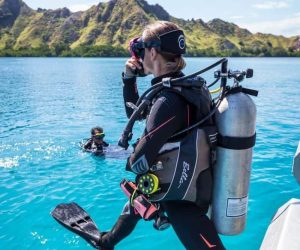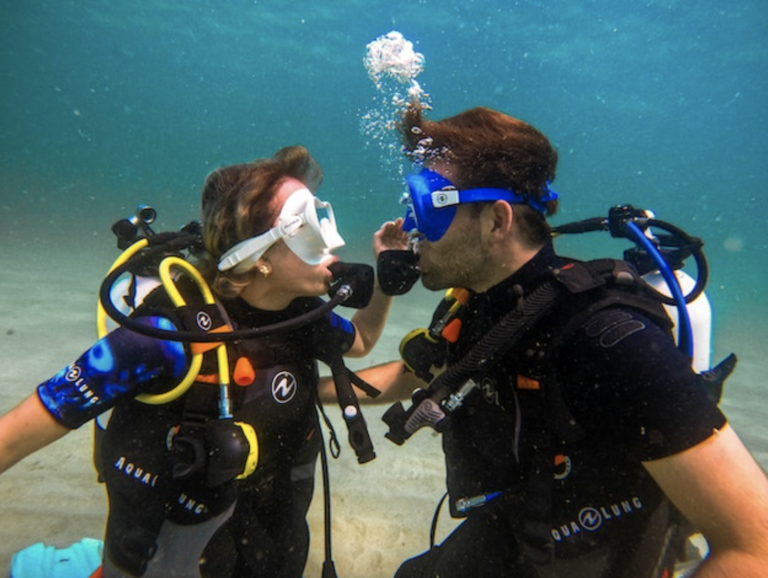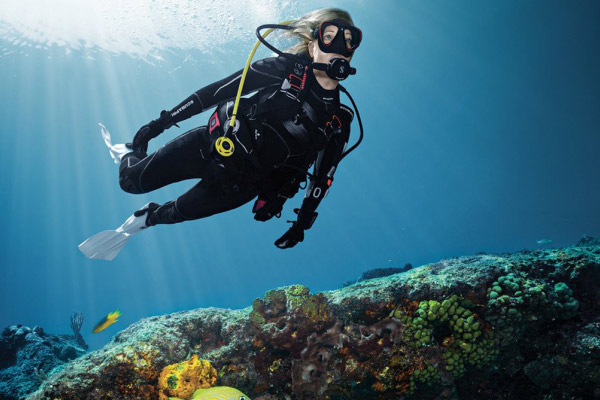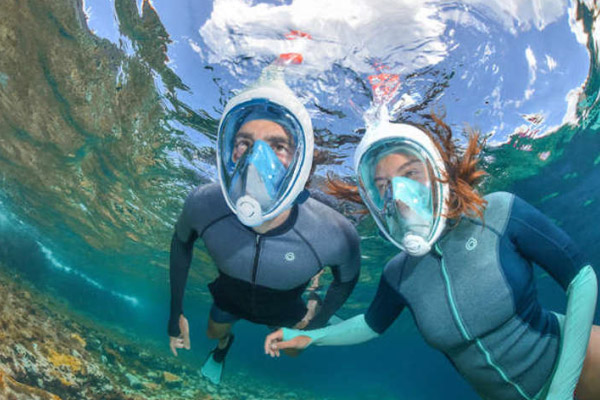Are you ready to face the challenge of free diving? Not only is it a great way to explore the underwater world, it's also an excellent choice to keep fit, meet people and learn more about marine life.
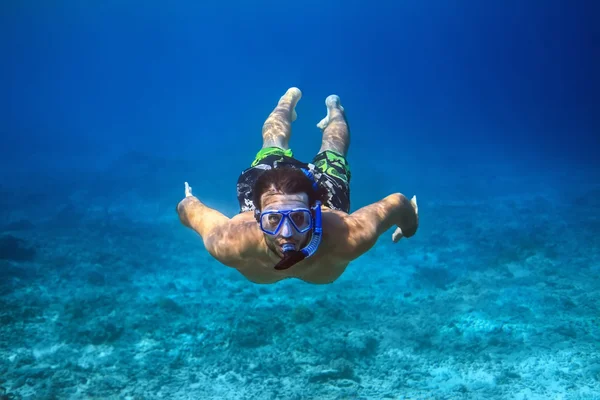
Contents
How does freediving work?
Apnea diving, or freediving, means diving as long, as far or as deep as possible while holding your breath, so the basis here for working is breath control.
It is the oldest and most original form of diving.
Regardless of whether it is “just for fun” or sporting ambitions – good training and regular training is important to ensure safety for you and your partner and to enjoy your time.
What is the freediving experience?
Quite different from almost all sports on the planet, where the objective is to accelerate the heart and increase adrenaline levels, the objective of free diving it's the opposite.
To deliver your best version, your body needs to relax mentally and physically. Some divers explain the sensation as being the best experience, as it provides true silence.
although the diving has traditionally been a male-dominated sport, more women are taking up this activity today, thanks to increased public awareness of its health benefits.
Apart from being in contact with turtles, countless fish, corals and algae make everything an out-of-this-world experience.
Freediving or freediving?
The two terms mean that the diver is free of technical devices that supply him with oxygen, such as the oxygen cylinder, for example.
Aside from the suit, fins and diving mask, he only has his own air available in his lungs for diving.
apnea and free diving are the same thing, with the term apnea better describing the situation. So don't be alarmed if you see another pronunciation for this sport.
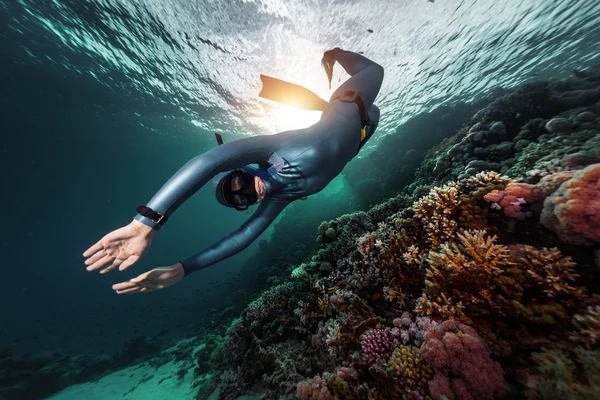
Apnea free diving
Diving is not just a sport, it can also be the source of total relaxation in a weightless environment and wonderful interaction with nature.
It doesn't matter if the free diving it is practiced recreationally or competitively, in the sea or in a waterfall, but it is very important that you pay attention when you are snorkeling.
Apnea diving is not without reason one of the extreme sports, because small mistakes and ignorance end up fatally. So, friendly advice.
Never practice alone! The so-called blackout comes without warning.
In this style of diving, the large lung capacity and physical fitness alone will not keep a diver underwater for long, as the aim here is to go deeper and over and over again.
Shallow water blackout
Shallow water and deep dives sound very contradictory at first but are explained quite simply. The deeper the diver is below the surface of the water, the greater the ambient pressure that weighs on him.
As a result, the chest and lungs are increasingly constricted and the air ends up being much more compressed.
This is followed by an increase in the partial pressure of oxygen, which leads to an increase in the transfer of oxygen to the blood, providing CO2 throughout the body.
So the diver has enough oxygen down there for now and a blackout seems pretty unlikely at this point, everything would be wonderful if it wasn't for the way back.
The most critical thing for the diver is actually the way back to the surface of the water, which is why there is often talk of a blackout on the way back.
The last third of the climb is often problematic because the pressure drops dramatically as the air you breathe in and the lungs expand again.
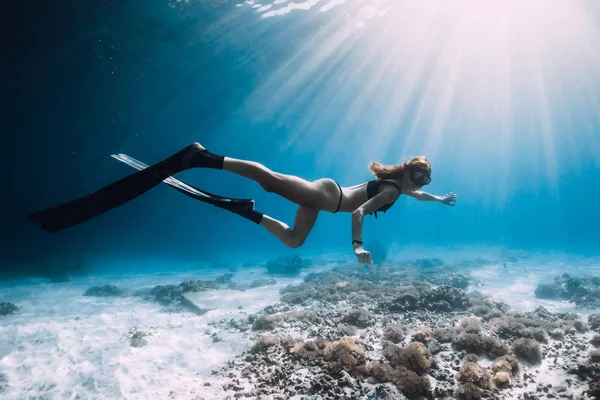
free diving equipment
Very different from scuba diving, the equipment for the free diving it is manageable and affordable for almost every budget. If you are starting in this mode, the following equipment will be sufficient:
- Diving suit;
- Snorkel;
- fins.
And so, what about the modality? free diving? It's quite an adventure!


